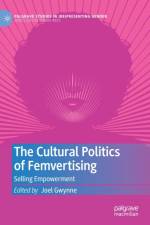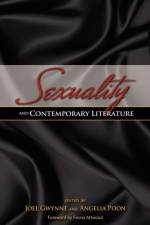av Joel Gwynne
1 429
Sexuality is often perceived as shameful, for the dangers it potentially precipitates rape, incest, exploitation, cruelty, and humiliation often outweigh its pleasures. Essentialist arguments surrounding sexuality have historically cast the subject as taboo, and even within relationships where sex is sanctioned namely heterosexual marital relationships it is often a difficult subject to navigate and negotiate. Over the last thirty years, feminist, postcolonial and queer theorists have interrogated the ways in which sexuality is conceptualized and constructed, specifically with the intention of deconstructing essentialist notions of sexuality and identity formation. Yet, while recent theoretical interventions have re-situated sexuality as a historical and social category allowing us to see how ideas about sexuality are linked to forms of power and other hegemonic categories of identity and subjectivity like class, race, gender and nationality sexuality remains a contentious subject. Debates surrounding the politics and problems of pleasure still proliferate within the academy, and in contemporary popular culture and society the pervasiveness of moral panics concerning the sexualisation or pornographication of Western cultures indicate that sexuality remains an elusive and complex topic, and one that requires continued critical reflection. A review of recent scholarship investigating the cultural representation of sexuality, work that pays specific attention to the imaginary and the expressive, reveals that much critical attention has tended to focus on film, theatre, and the visual arts rather than literature. While this is not surprising given the dominance of visual culture in today s media-saturated societies around the world, literature and written discourse will continue to play a central role in determining how we understand and define our (sexual) selves as long as there are literate populations. This collection seeks to close a gap in current critical scholarship by attending precisely to the nexus between sexuality and literature of the contemporary moment. It contends that reading, not just viewing, informs how we think of ourselves as sexual beings, and that literature and the written realm of the imagination remains an important outlet for the expression and exploration of sexual desire, sexual acts, sexual being, sexual identity and sexual interaction. In critically examining the plural representations of sexuality in contemporary literature, this book has a distinctly global emphasis, containing essays that interrogate sexuality in the work of not only a number of mainstream American and British writers but also less well-known writers from New Zealand and Canada. All of the chapters owe primary intellectual and theoretical debts to three broad and overlapping domains of critical scholarship and practice: feminism, queer theory, and postcolonial studies. As the first critical collection of essays to consider the representation of sexuality across such a wide variety of contemporary writing, Sexuality and Contemporary Literature analytically foregrounds insights into the historical and current arrangements of sexuality that contemporary literature provides, while also inviting the reader to imagine other possibilities for the future that literary texts open up. Sexuality and Contemporary Literature is an important book for literary and cultural studies collections.


